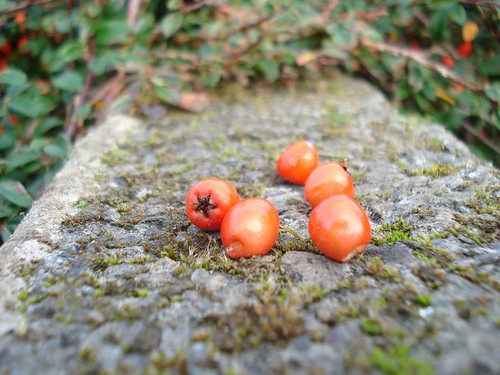 |
| 5 Irish Cherry Tomatoes from IvanWalsh.com on flickr. |
Having said that: while the poem doesn't, for me, succeed as poetry, it did recall an early poem I wrote that features cherry tomatoes. Because it struck a personal chord, I decided to translate it into my own language. That effort spawned the following poem, which borrows and remixes Salzano's image. I say "borrow" because I hope my language gives something back to hers, just as this exercise in translating her language into mine has re-emphasized for me my own approach to writing and revising poems, which tends toward focus and compression: cutting any lulls in rhythm or dead-space in imagery as created by unnecessary words. I've observed elsewhere that "focus and compression, as an editor once suggested to me, are keys to creating successful poems. Turn the innovative phrase, I add, but turn it succinctly; make it tight. Compress experience into the poetic vessel so when you light the fuse and release it on the world, it will explode in the reader's face, it will reverberate through the bones."
Anyway, here's my version of "Cherry Tomatoes," which I don't intend to publish anywhere but here. Let me know your impressions in the comments:
Cherry Tomatoes
cluster on thin vines vining their cage
in a garden lining the driveway, soil—
hose-wet and summer-worn—feeding
blossoms become cysts ripened and
split wide.
She plucks as she passes,
folding fruit into a shirt-basket, though
she knows no one will eat
just as she knows what's left will fall,
will farewell the vine and pulp the stones
below.
No comments:
Post a Comment